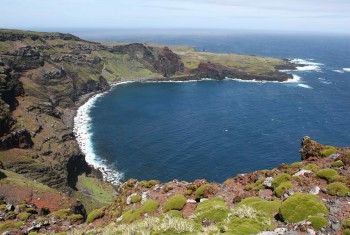An International Conference on Island Evolution, Ecology, and Conservation will be held over 7-11 July 2014 at the University of Hawaii at Manoa in Honolulu, Hawaii, USA over 7-11 July 2014 (click here).
“Islands are renowned for their extraordinary biota - inspiring biologists and providing key insights into evolution, biogeography, and ecology. As a result of the devastating effects of human colonization, island ecosystems face severe threats, and island conservation has become a vital international concern.
An international conference consisting of plenary lectures, symposia, contributed talks, and posters will examine a broad range of taxa, regions, and biological disciplines. This will be the first of a regular series of meetings that will be held every four years, on islands around the world, at which island biologists can come together, share insights, and develop collaborations that will accelerate the pace and effectiveness of island research and conservation.
“We invite abstracts for any topic related to the focal themes of the conference, including ecology, evolution, biogeography, and conservation on islands, as well as emerging topics such as paleoecology, climate change, ecosystem services, and novel ecosystems on islands. We welcome contributions related to a broad range of topics, organisms, and regions, especially those that have so far attracted little attention. Contributions that aim at advancing data synthesis across different island archipelagos and/or taxa are particularly welcomed.”
The deadline abstract submission is 31 January 2014; the deadline for notification of acceptance is 28 February 2014; final acceptance requires that the author register for the conference by 15 April 2014 (click here).

McNish Bay, Prince Edward Island, Southern Ocean, photographed by Peter Ryan
At the Island Biology 2014 conference, organizational meetings will be held to establish the International Society for Island Biology (ISIB) and its scientific journal, Island Biology (click here).
See an earlier announcement on the Conference.
John Cooper, ACAP Information Officer, 1 November 2013

 English
English  Français
Français  Español
Español